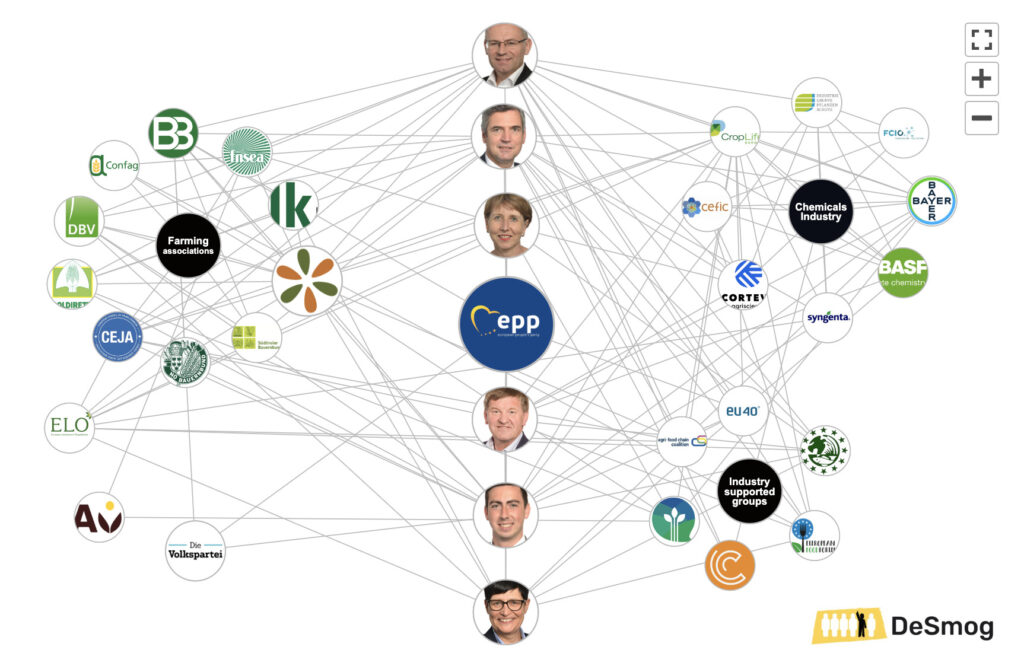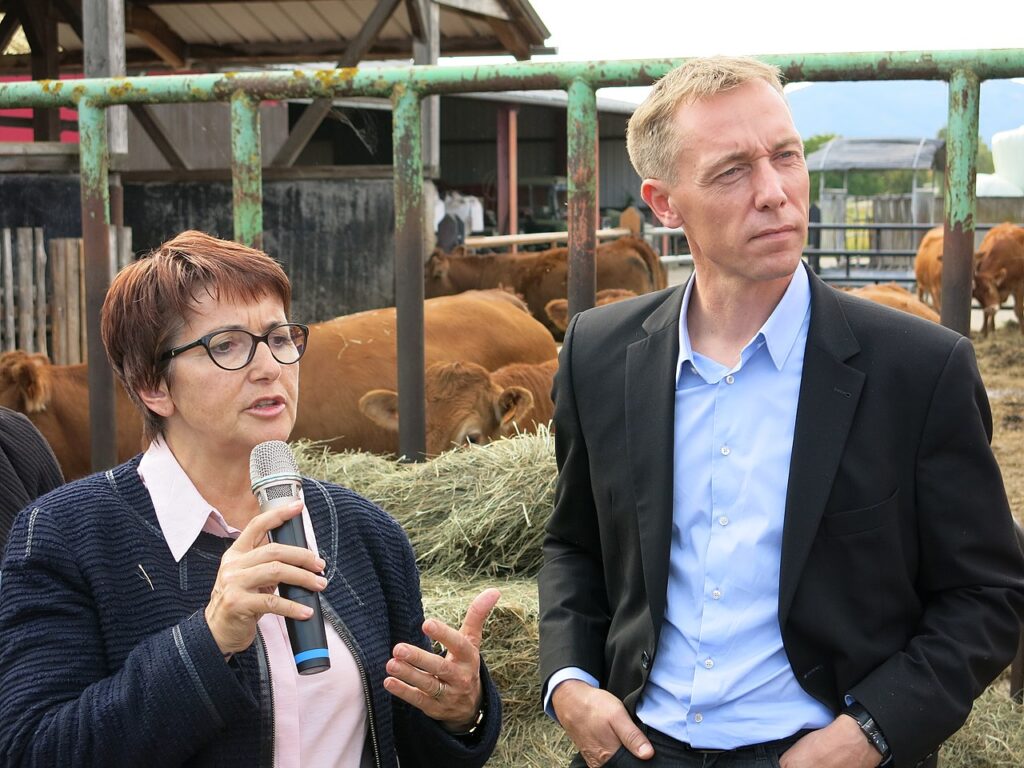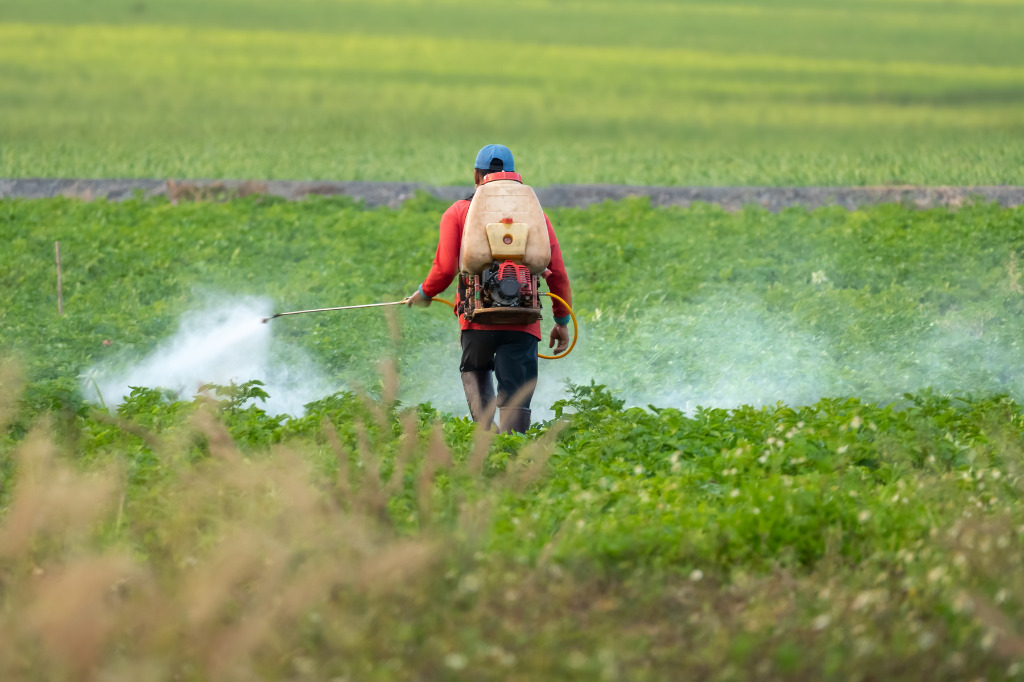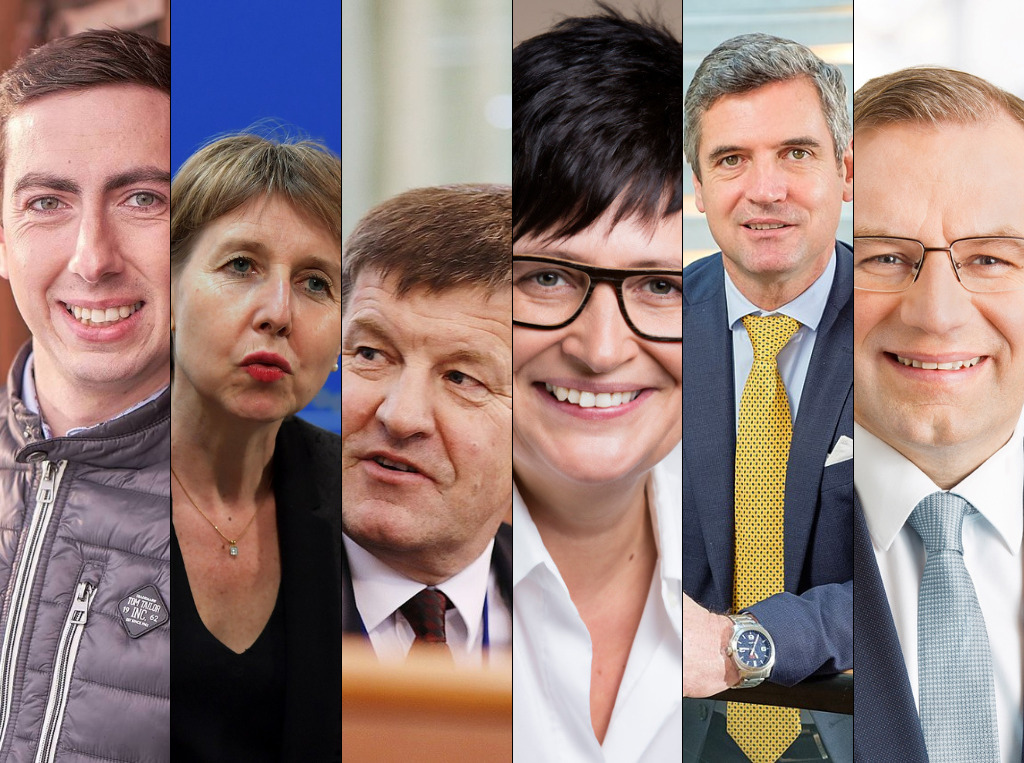The Big Ag Lobby is Influencing EU Politicians to Oppose Pesticide Reduction and Green Policies: Report
8 Mins Read
A new investigation by climate media outlet DeSmog has revealed the deep ties between agriculture lobby groups and a group of influential EU politicians, who are consequently pushing against the bloc’s green agriculture reforms around pesticide use, ecosystem restoration and the Farm to Fork strategy.
Earlier this month, DeSmog and Politico revealed the high volume of meetings between industrial farming lobby groups and six politicians from the centre-right European People’s Party (EPP) – the largest group in the EU Parliament – with the aim of forming powerful alliances to resist EU Green Deal legislations and stall reforms since the Farm to Fork strategy was laid out in 2020.
Between January 2020 and July 2023, the six members of the EU Parliament (MEPs) met lobbyists over 400 times. This meant an average of two meetings a week, outnumbering meetings with non-governmental organisations representing public interests by eight to one. Five out of the six representatives allegedly flouted EU transparency guidelines, with 20% of the meetings held with unregistered groups, and one in six documented by the investigation not declared on the parliamentary website.
The EPP is vehemently opposing two key pieces of legislation from the Green Deal, which aims to reduce emissions in line with global targets. These are the Nature Restoration Law, which outlines plans to restore degraded ecosystems, and the Sustainable Use Regulation (SUR), which has a target of halving pesticide use by 2030.
Today, the EU Parliament’s environmental committee is set to hold a major vote on the pesticide reduction law, which climate campaigners say could be considerably weakened. Ahead of the vote, DeSmog revealed just how influential lobbyists have been on EU legislation thanks to their ties with the six EPP politicians.
The six EPP politicians’ controversial past

The six MEPs involved in the investigation are Alexander Bernhuber (Austria), Herbert Dorfmann (Italy), Norbert Lins, Christine Schneider (both Germany), Franc Bogovič (Slovenia) and Anne Sander (France). These leaders met with organisations including Bayer, BASF, Corteva and Syngenta – the four largest pesticide companies in the world – fertiliser firms Yara and OCP Group, meat and dairy lobby groups, as well as industrial farming unions like Copa-Cogeca.
The EPP has been criticised for its attempts to water down initiatives like Farm to Fork or the 200 Biodiversity Strategy. Germany’s Lins, who is the chair of the EU’s agriculture committee, called for a major reassessment of the pesticide reduction law in December, which drew controversy and led to accusations of trying to delay the legislation.
Bernhuber, meanwhile – the EPP’s chief negotiator on the SUR – has previously demanded the legislation be dropped altogether. The party itself has been accused of blackmail and spreading fake news to oppose the Nature Restoration Law, which EPP chief Manfred Weber denies.
In July, the party entered more controversy after substituting more than a third of its members on the environment committee to attempt to defeat a crucial vote on the law. The politicians who were brought in included Dorfmann, Sander and Borgovič.
Copa-Cogeca’s large foothold in the EU
The MEPs analysed by Desmog met Copa-Cogeca – and its French and German members, Fédération Nationale des Syndicats d’Exploitants Agricoles (FNSEA) and Deutscher Bauernverband, respectively – 40 times in the assessed period. Over 75% of the meetings were on Farm to Fork and the two aforementioned laws.
Copa-Cogeca is the EU’s largest farmer and agri-cooperative union with unprecedented special access in the bloc. But it’s a controversial group even among farmers, as it has admitted to inflating its membership and has been accused of promoting industrial agriculture over smaller and young farmers. It has opposed Farm to Fork reforms too, saying they will lead to production declines and food security risks – claims scientists and campaigners disagree with.
According to DeSmog, Copa-Cogeca holds deep personal ties with the six MEPs, including one family relation. Anne Sander, a major negotiator on farming subsidies (which directly contribute to at least half of EU cattle farmers’ income) and ecosystem restoration, is the sister of Franck Sander, a VP at FNSEA, which is opposed to Farm to Fork. Anne has had at least 12 meetings with FNSEA or its branches since 2020, half of which aren’t declared on the parliamentary site – in fact, a quarter of her meetings on the Common Agricultural Policy subsidy reforms were with them, while not a single meeting was held with non-profits on the subject.

Meanwhile, Austria, farming union Österreichischer Bauernbund (ÖBB) pays for office space for Bernhuber, who is an MP with the Österreichische Volkspartei, a local conservative party ÖBB is part of as well. He is a member of one of ÖBB’s branches where he was employed as a paid consultant between 2017-19. The ÖBB is also the chief group within Copa-Cogeca’s Austrian branch.
These organisations and other farming groups are joined by Dorfmann and others on a hike in the Alps every summer, where they chat about EU policy. Last year, Copa-Cogeca’s German branch told participants they needed to reconsider the pesticide reduction plan.
“It is evident that numerous conservative MEPs from the EPP group are historically very close to Copa-Cogeca, the farm lobby that mostly defends the interests of the largest farms and land owners, rather than the farming sector as a whole,” lobby watchdog Corporate Europe Observatory’s Nina Holland told DeSmog.
Multiple routes to access
The pesticide industry is a major lobbying force in the EU and holds privileged access to the EPP. Since plans to slash pesticide use were announced in 2020, the sector has spent €35M on EU lobbying. The aforementioned four major pesticide companies, alongside their trade association CropLife Europe, have held 29 official meetings with the MEPs since 2020.
CropLife Europe is also a strategic partner of the EU40, a group of young politicians in the bloc, which includes Bernhuber as a current member. Lins and Dorfmann, meanwhile, are alums. The EU40 denies representing commercial interests, but its partners are granted special access to politicians at events like its annual summer party. Its ‘soirée’ last month was described as “an opportunity to network with Brussels’ finest” and “a hotspot” for MEPs, their assistants, and officials from the EU Commission, EU Council, and permanent EU representatives.
Meanwhile, the European Food Forum, which is described as an independent and non-partisan food and farming platform, is led and governed by MEPs including Schneider. Its business members include CropLife, Cefic (which represents BASF, Bayer and other agrochemical firms) and Yara, Europe’s biggest fertiliser company.

CropLife Europe said: “We embrace the ambitions of the EU Green Deal and Farm to Fork strategy and believe Europe’s farmers must have access to a full toolbox of innovative crop protection solutions to maintain their production as they transition to a more resilient and sustainable farming system.”
Bayer allegedly supports Farm Europe, an agricultural think tank opposed to the pesticide reduction law that has met with Sander twice since 2020. Calling itself “the leading agriculture technology company”, Bayer told DeSmog: “We have a direct interest in battling climate change and reversing biodiversity loss.”
It added that it welcomed the EU Green Deal’s objectives and “supports the ambition to accelerate the transition towards an even more sustainable and resilient food system, and enhanced biodiversity”. When asked about lobbying, which Bayer called “an essential part of the democratic process”, it said: “Of course, Bayer engages on a number of different topics, in multiple countries, and with a variety of stakeholders and organisations.”
What next?
Ahead of a final decision expected next month, the EU parliament will hold an interim vote on the pesticide regulation today, where at least two of the six MEPs – Bernhuber and Schneider – will be present.
DeSmog says voting in the agricultural committee – which includes five of the six MEPs – earlier this month can give a sense of how things could pan out. The committee voted to significantly weaken the law, which included the removal of the idea of using CAP subsidies to support the transition (which effectively defunds the proposal), as well as the deletion of a ban on pesticide use in sensitive areas.
Bogovič was part of a group that attempted to delay the pesticide reduction deadline from 2030 to 2050, while other EU members (including some from the EPP) pushed to remove mandatory national targets. Speaking to Bogovič, Schneider promised to defend these decisions in the environmental committee, as reported by Politico.

Up to 80% of EU citizens are concerned about the impact of pesticides on the climate. Non-governmental organisations say the EPP’s close ties with the farming lobby are concerning. “This highlights the urgency of increasing transparency about lobbying in the European Parliament,” said Célia Nyssens-James, agrifood policy manager at the European Environmental Bureau.
“These revelations add to the growing evidence that powerful industry interests are simply buying influence in the name of profit margins, at catastrophic expense to people and planet,” she added. “Clearly, too many MEPs on this Committee do not have European citizens’ best interests at heart.”
Bogovič, for his part, rejected the allegations that MEPs are under the influence of lobbyists, telling Politico: “I’m a farmer and… I’m an agricultural engineer and I have my own opinion. I really don’t need their opinion on this. I have my own clear view of what is possible and what is not possible in agriculture.”
Clara Bourgin, food and climate campaigner at Friends of the Earth, told DeSmog: “These ties are both appalling and sadly unsurprising. When certain MEPs strongly push back against EU pesticide law and binding reduction goals, and more broadly against European environmental commitments, it’s clear that intensive industry lobbying is behind it.”
She added: “The upcoming vote will show which MEPs will stand for a healthy and sustainable future and who will bow to the interests of the pesticide industry.”
This article is part of our Meat Misinformation Miniseries, in which we feature investigations that shed light on how the animal ag industry is using its influence to alter food policy regulations; read the first installment: Meat & Dairy Lobby Pressured UN Body to Censor Work on Livestock Farming Methane Emissions.




